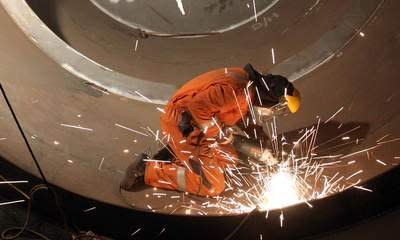UK Manufacturing Growth Accelerated In January

Growth in the UK's manufacturing sector was given a boost in January, pushing its Purchasing Managers' Index reading to a three-month high of 52.9.
The score is up slightly on the 52.1 recorded in December, and any figure above 50 on the 100-point scale indicates that the sector is expanding.
Markit (NasdaqGS: MRKT - news) /CIPS, which conducted the survey, said PMI has remained in growth territory for 34 consecutive months - a stark contrast to China's sprawling manufacturing industry, which saw its PMI rating plummet to its lowest level since mid-2012.
The boost to British manufacturing has been attributed to increasing levels of work from the domestic market, with the rate of expansion also accelerating to a 19-month high.
However, the picture is not entirely rosy.
A recent trend in new export orders has fallen back into decline, with many British firms connecting lower levels of overseas sales to stronger competition.
The unfavourable exchange rate between sterling and the euro has also affected trade within the eurozone.
Expansion in the manufacturing industry also appeared to be fuelled by larger businesses, with growth in small and medium-sized firms described as "mild".
There still appears to be plenty of spare capacity in many companies, with overall employment in the sector falling for the fourth time in six months.
Rob Dobson, a senior economist at Markit, said the sector has managed to shrug off "a number of potential headwinds" - including the business impact of flooding in northern England and Scotland.
"Strong competition on the sales side combined with the ongoing weakness of global commodity prices meant that manufacturers saw selling prices and input costs fall further in January," Mr Dobson added.
"Subdued growth, rising global headwinds and a lack of inflationary pressure provide further cause for the Bank of England to push its first rate increase into the back and beyond of 2016."

 Yahoo Finance
Yahoo Finance 